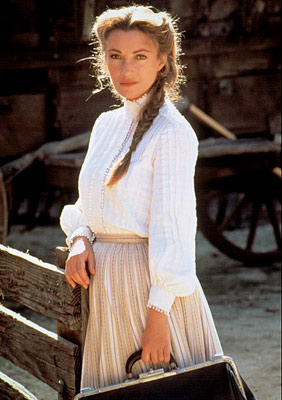You probably know that rural medicine isn’t all tomahawk lacerations and rabies cases unless you’ve viewed too many episodes of Dr. Quinn Medicine Woman (DQMW to fans), but you may wonder why you should think about it. After all, many of you came to Penn to be in a big city and plan to stay in one. But consider the following points:
- You may have the option to do a clinical rotation in a rural area during medical or dental school.
- You may speak too generally about the “projected physician shortage” and “underserved areas” in a medical school interview, revealing your lack of knowledge about current issues in the field.
- You might apply to one or more rural medicine programs thinking, “Well, I wouldn’t mind living in the country (and the mean GPA looks promising)” — a less than compelling reason to apply.
- Rural practice might be for you. Dr. Quinn went to medical school in Philadelphia, but the frontier offered better opportunities. Okay, she isn’t real (just real cool with her old-timey stethoscope); however, some people change their career plans after trying a rural rotation or residency. And some of you may be interested in rural medicine programs, but should learn more about them before putting them on your application.
The AAMC’s January 2010 edition of Choices: The Careers in Medicine newsletter has a detailed profile of the field, from day-to-day life on the job to opportunities to train in a rural area in medical school. Another excellent resource is the National Rural Health Association.
The Frontier Nursing Service’s Courier Program offers a clinical volunteering opportunity to spend six to twelve weeks in an eastern Kentucky community. You can also find the program on Facebook and read blog entries written by a volunteer from Dartmouth. Some Penn students have made their own arrangements to volunteer at rural hospitals and clinics close to home or near a relative.
Currently, the U.S. federal government’s National Health Service Corps offers up to $145k in medical school loan repayment in exchange for five years of service providing health care in an underserved area (not exclusively rural) and 50k for two years of service. On Facebook? You bet!
Sadly, the Bring-Back-Dr.-Quinn-Medicine-Woman movement on Facebook has burned itself out — choked on its own fervor — and will leave Facebook on October 1, but don’t let that stop you from checking out some of the links above!



Dr. Quinn lives on in the hearts and minds of Jane Seymore fans everywhere. Thank you for not forgetting.
That AAMC interview you referenced was from a graduate of the University of Pennsylvania School of Medicine!